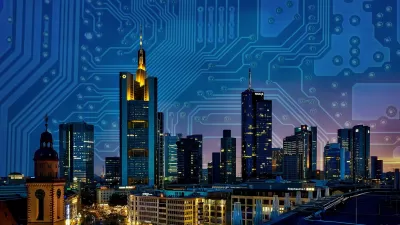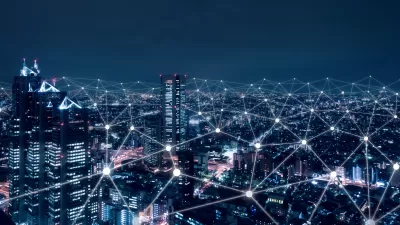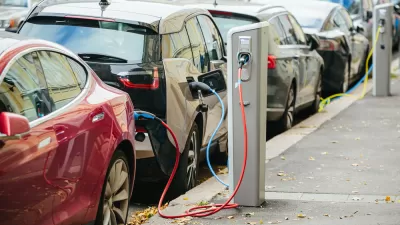As the pandemic forces cities to redefine their priorities, mayors around the country express their plans and hopes for technology and the 'smart city' of the future.

The 'smart city' concept, writes Danielle McLean, promises to "eliminate the hassles of urban life and make cities safer, greener and more efficient." But as the pandemic shifted priorities and technology did not deliver on its bold promises, Smart Cities Dive "wanted to find out what being a smart city means today and how cities are implementing smart-city initiatives throughout the country."
The article details responses from 15 large U.S. cities about their smart city plans, the limitations and challenges they've encountered in implementing technological fixes, and how they approach inequality.
In general, these respondents say the goal of smart cities is to improve residents’ quality of life. Local leaders say they achieve that goal by using technology and data responsibly as tools for decision-making and experimentation.
McLean describes the answers of mayors from around the country who describe the benefits they hope to derive from technology, including more efficient use of city resources, improved quality of life for residents, and enhanced public engagement. Many mayors express the hope that smart cities will prove to be more equitable and 'human-centered.'
FULL STORY: 15 city leaders define a 'smart city'

Planetizen Federal Action Tracker
A weekly monitor of how Trump’s orders and actions are impacting planners and planning in America.

Restaurant Patios Were a Pandemic Win — Why Were They so Hard to Keep?
Social distancing requirements and changes in travel patterns prompted cities to pilot new uses for street and sidewalk space. Then it got complicated.

Map: Where Senate Republicans Want to Sell Your Public Lands
For public land advocates, the Senate Republicans’ proposal to sell millions of acres of public land in the West is “the biggest fight of their careers.”

Maui's Vacation Rental Debate Turns Ugly
Verbal attacks, misinformation campaigns and fistfights plague a high-stakes debate to convert thousands of vacation rentals into long-term housing.

San Francisco Suspends Traffic Calming Amidst Record Deaths
Citing “a challenging fiscal landscape,” the city will cease the program on the heels of 42 traffic deaths, including 24 pedestrians.

California Homeless Arrests, Citations Spike After Ruling
An investigation reveals that anti-homeless actions increased up to 500% after Grants Pass v. Johnson — even in cities claiming no policy change.
Urban Design for Planners 1: Software Tools
This six-course series explores essential urban design concepts using open source software and equips planners with the tools they need to participate fully in the urban design process.
Planning for Universal Design
Learn the tools for implementing Universal Design in planning regulations.
Heyer Gruel & Associates PA
JM Goldson LLC
Custer County Colorado
City of Camden Redevelopment Agency
City of Astoria
Transportation Research & Education Center (TREC) at Portland State University
Camden Redevelopment Agency
City of Claremont
Municipality of Princeton (NJ)





























